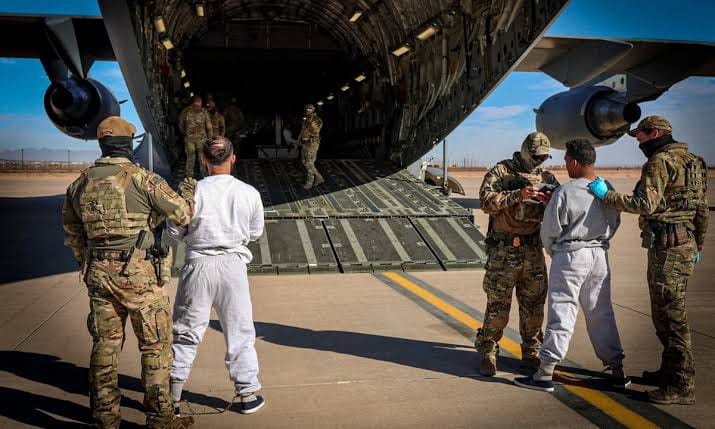US empties Guantánamo migrant facility, sends 177 deportees to Venezuela
The deportations, which took place on Thursday, appear to have emptied the military facility of all migrant detainees, marking a significant shift in U.S. immigration policy.

In a move that has drawn criticism from human rights advocates, the United States has deported 177 migrants from Guantánamo Bay to Honduras, where they are set to be transferred immediately to Venezuela. The deportations, which took place on Thursday, appear to have emptied the military facility of all migrant detainees, marking a significant shift in U.S. immigration policy.
The operation unfolded just days after human rights lawyers filed a lawsuit demanding access to dozens of individuals held at the U.S. naval base. The American Civil Liberties Union (ACLU) had argued that the detainees were being denied legal representation.

A spokesperson for the U.S. Department of Homeland Security confirmed the deportation, revealing that 126 of those on board had criminal charges or convictions. Among them, 80 were allegedly linked to Venezuela’s Tren de Aragua gang, while 51 had no known criminal record.
The Trump administration first began sending detained migrants to Guantánamo Bay on February 4, branding them as “the worst of the worst.” Officials at the time claimed the detainees included “criminal alien murderers, rapists, child predators, and gangsters.” However, human rights groups and families of some deportees dispute these allegations, saying many were wrongfully detained.
One such case is that of Luis Alberto Castillo Rivera, a 23-year-old Venezuelan asylum seeker who was detained at the U.S.-Mexico border on January 19—just one day before Donald Trump took office with a vow to expel “millions and millions of criminal aliens.” Speaking to Spanish news agency EFE, his sister, Yajaira Castillo, refuted claims that he was tied to the Tren de Aragua gang. “He’s innocent,” she insisted.
The deportation flight coincided with a broader geopolitical development between Honduras and the United States. Two days earlier, Honduran President Xiomara Castro announced a last-minute deal with the Trump administration to salvage a key extradition treaty set to expire on February 28.
While the treaty has historically been used to extradite drug traffickers to the U.S., its renewal has sparked controversy. Critics accuse Castro’s government of trying to shield her inner circle, particularly after a leaked video allegedly showed her brother-in-law negotiating illicit campaign contributions with traffickers.
Honduran Foreign Minister Eduardo Reina emphasized that the new agreement includes protections to prevent the treaty from being used to interfere with the country’s 2025 elections. Some see this as an attempt to avoid a fate similar to that of former President Juan Orlando Hernández, who was convicted in New York last year on drug trafficking conspiracy charges. Castro herself has not been accused of any wrongdoing.
Honduras remains one of the few Latin American nations to recognize Nicolás Maduro’s presidency in Venezuela, maintaining a delicate but functional relationship with both Washington and Caracas. The latest deportations highlight the shifting alliances and ongoing complexities of U.S. immigration enforcement, leaving many of those affected in legal limbo as they face uncertain futures back in Venezuela.














